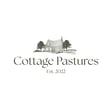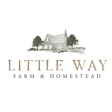
Funny Stories and Lessons from the Homestead
This is a fun episode where we dive into funny stories and lessons learned from the first year homesteading. Many of these stories stem from simple inexperience, various resource constraints and other circumstances that ultimately have allowed us the opportunity to grow Little Way Farm and Homestead into the educational farm that it is becoming.
Do you have a great homesteading story to share? Send us an email at hello@littlewayhomestead.com. Let us know!
We are also looking for contributors to our website blog. If you are interested in having a homesteading, small-scale farming, or Catholic faith themed post included in the blog - send us submissions directly at hello@littlewayhomestead.com
Interested in the Little Way Farm and Homestead Little Farmer's Immersion Experience? Check out littlewayhomestead.com/events.
Are you a Catholic farming, homesteading or otherwise producing an agricultural good (e.g., beeswax candles, etc.)? Consider listing your business on the Little Way Farm and Homestead website. There is no charge at this time to do so. Visit www.littlewayhomestead.com/directory
For more information about Little Way Farm and Homestead including the farm, podcast, and upcoming events, check out https://littlewayhomestead.com/.
For media inquiries, advertising, speaking requests, guest referrals, consulting and more - email us at hello@littlewayhomestead.com.

